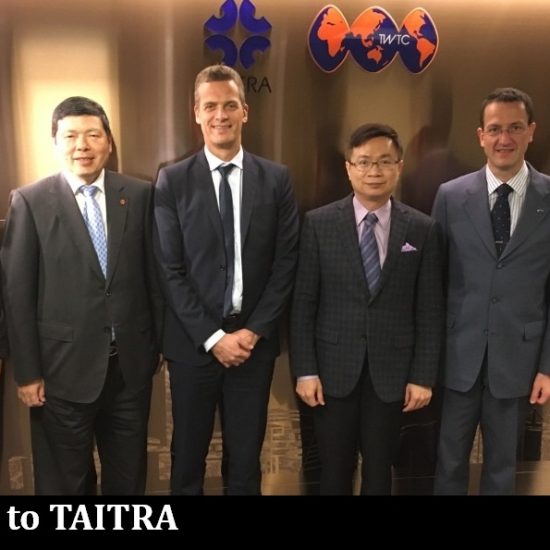Insights on EU-Asian sustainable management
The ECCT co-hosted a Special Lunch on the topic "Insights on EU-Asian sustainable management" to review and analyse the insights put forward at the 6th Workshop on EU-China Relations in Global Politics, held at National Taiwan University from 15-16 March. The lunch was jointly hosted by the ECCT, the UACES Collaborative Research Network on EU-China Relations and the Konrad-Adenauer-Stiftung - Regional Project 'Energy Security and Climate Change'. It was moderated by Dr Peter Hefele, Director, Regional Project "Energy Security and Climate Change", Konrad-Adenauer-Stiftung, Hong Kong. The panellists were Dr May Tan-Mullins, Dean, Graduate School & Director, Institute of Asia and Pacific Studies; Professor, School of International Studies, University of Nottingham, Ningbo; Giuseppe Izzo, General Manager, Taiwan & Regional Vice President, Greater China and South Asia Region, STMicroelectronics, Vice Chairman & Steering Committee Member of the ECCT's Low Carbon Initiative and Erdal Elver, President and CEO, Siemens Limited Taiwan & LCI Steering Committee Member. The event featured short presentations by LCI Steering Committee members Giuseppe Izzo and Erdal Elver. This was followed by a panel discussion on the application of EU-Asian sustainable management in the domains of politics, finance, logistics, consumerism and energy.
At the event, panellists shared their expertise on sustainable management and insights gleaned from the two-day workshop covering subjects ranging from climate change and energy security to renewable energy development and the sustainable management of cities.
In his presentation Giuseppe Izzo introduced the LCI while Erdal Elver gave some concrete examples of what LCI members are doing to promote low carbon and sustainable solutions in Taiwan.
In the panel discussion, the participants agreed that sustainable management is not just about technology. It also requires the right policies. It was noted that many companies, even those in traditional industries, are moving rapidly to improve their sustainability. There are still many issues to resolve the problems confronting the planet such as security and inequality. The growing power of very large corporations, which operate in the largely unregulated digital world, is creating wealth silos, which is not only concentrating wealth in fewer hands but also restricting opportunities. For this reason, good regulatory systems are needed to keep all sectors open. This will require ongoing dialogue with large corporation and with authorities in countries such as China.
On a question as to how to spur the drive towards a low carbon economy, it was noted that it is difficult to drive change in Taiwan when energy prices are so low and there are few incentives for companies and consumers to adopt green solutions. In addition, there is not enough awareness of the benefits in terms of lower operating costs, reduced carbon footprints and greater productivity gains that result from investing in new technologies. Making the shift will require a change in mind-set. Another problem is the tendency to focus only on the very short term by politicians (because of election cycles) and companies (focusing too much on quarterly results). However, the good news is that the costs of many low carbon technologies, such as renewable energy equipment, are falling rapidly, making them much more attractive. It was noted that the Taiwan government has set ambitious goals but that it has not yet followed through on creating the right regulatory environment to spur a shift to sustainable solutions.

